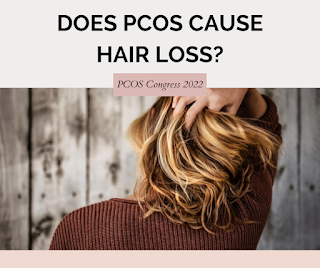Does PCOS cause hair loss?

PCOS (polycystic ovarian syndrome) is a hormonal imbalance that can result in a variety of symptoms, including hirsutism (excess face and body hair). While many people with PCOS have thicker hair on their faces and bodies, others have hair thinning and loss, known as female pattern hair loss. Male hormones, often known as androgens, are produced by the female body. Among them is testosterone. Androgens are responsible for initiating puberty and promoting hair development in the underarms and pubic regions. They also serve other vital purposes. PCOS produces an increase in androgen production, which leads to virilization. This refers to the emergence of more male characteristics, such as extra hair in areas where it does not normally grow, such as the: Face Neck Chest Abdomen Androgenic alopecia, or male pattern baldness, is caused by a hormonal imbalance and has the following symptoms: The frontal and parietal (side) portions of the scalp lose the most hair. The ...
.png)
